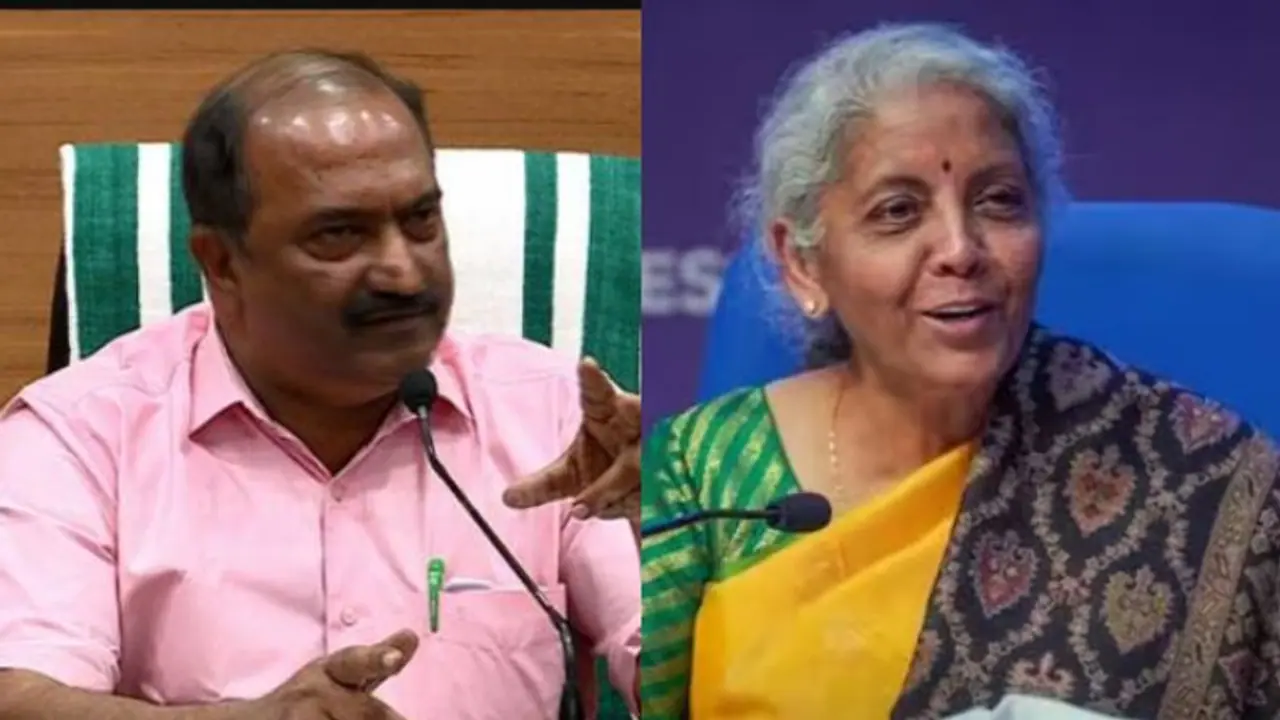During a GST Council meeting, Kerala's Finance Minister K N Balagopal advocated for increasing the state's share in GST to 60% from the current 50%. He highlighted issues with the current system affecting Kerala's IGST share and emphasized the need for reforms.
Thiruvananthapuram: Kerala Finance Minister K N Balagopal has proposed a review of the current GST tax sharing ratio between the central and state governments, suggesting that 60 percent should be allocated to the states, as opposed to the current equal sharing arrangement. According to a statement issued by his office on Sunday (June 23), Balagopal proposed in the GST Council meeting held in New Delhi that the current 50:50 ratio of tax sharing between the central and state governments should be adjusted to 40:60 in favor of the states.

Regarding the key topics discussed in the meeting, the state Finance Minister highlighted that a favorable decision regarding the Integrated Goods and Services Tax (IGST) is anticipated to yield substantial benefits for Kerala. Additionally, he noted that e-commerce operators are required to file GSTR-8 returns, detailing GST charges when conducting business through online platforms.
Balagopal emphasized that during the meeting, a decision was made to include in the GSTR-8 return specific details about the destination state where the tax revenue should be allocated, along with the corresponding tax amounts. He underscored the significance of this decision, stating that it is expected to greatly benefit Kerala.
Special reporting above Rs 1 lakh
There are currently some special restrictions on GST returns for interstate business-to-customer transactions. Generally, it is sufficient to show the total amount of business-to-customer transactions for each month in the return, but for inter-state business-to-customer transactions above Rs 2.5 lakh, there was a practice of showing each transaction separately. However, the GST Council has lowered this limit.
A change has been made that henceforth all business-to-customer inter-state transactions above Rs 1 lakh should be shown separately in the returns. Kerala had demanded that this limit be reduced to Rs.50,000. It was also agreed that this would be considered at the next stage. The growth rate of SGST (State GST) cash allocation received from Kerala is up to ten percent on average. However, when it comes to IGST settlement, this growth rate comes down to three percent.
Currently, e-commerce operators selling goods and services from other states to consumers in Kerala, such as through platforms like Amazon and Flipkart, collect IGST. However, since the consumer's state is not specified in their tax returns, Kerala has been missing out on its rightful share of the tax revenue, the minister elaborated.
He mentioned that the new decision made during the GST Council meeting will address this issue. Kerala had presented its case by outlining facts discovered through various studies, seeking a resolution. Balagopal stated that the GST Council has acknowledged Kerala's concerns.
During the meeting, Kerala emphasized that the deficiencies in the GST system were responsible for the state receiving a reduced share of IGST. Balagopal noted that the union government informed the meeting that even the central revenue from IGST was on a decline.
Union Finance Minister Nirmala Sitharaman has given strict instructions to the GST officials to check all the figures from July 1, 2017, till now and suggest the necessary solution. It was also decided to re-examine the issue within ten days with the participation of state GST officials. Only by identifying and fixing the problems in the system can the loss of revenue be eliminated.
Relief for traders
It has been decided to give one more opportunity to traders who have received notices for not filing returns on time in the matter of input tax credit. This facility will be available to traders who have received notices regarding input credit in their returns till 2021. The council also decided to avoid unnecessary legal proceedings to settle tax liability without interest and penalty for notices of non-willful tax evasion.
